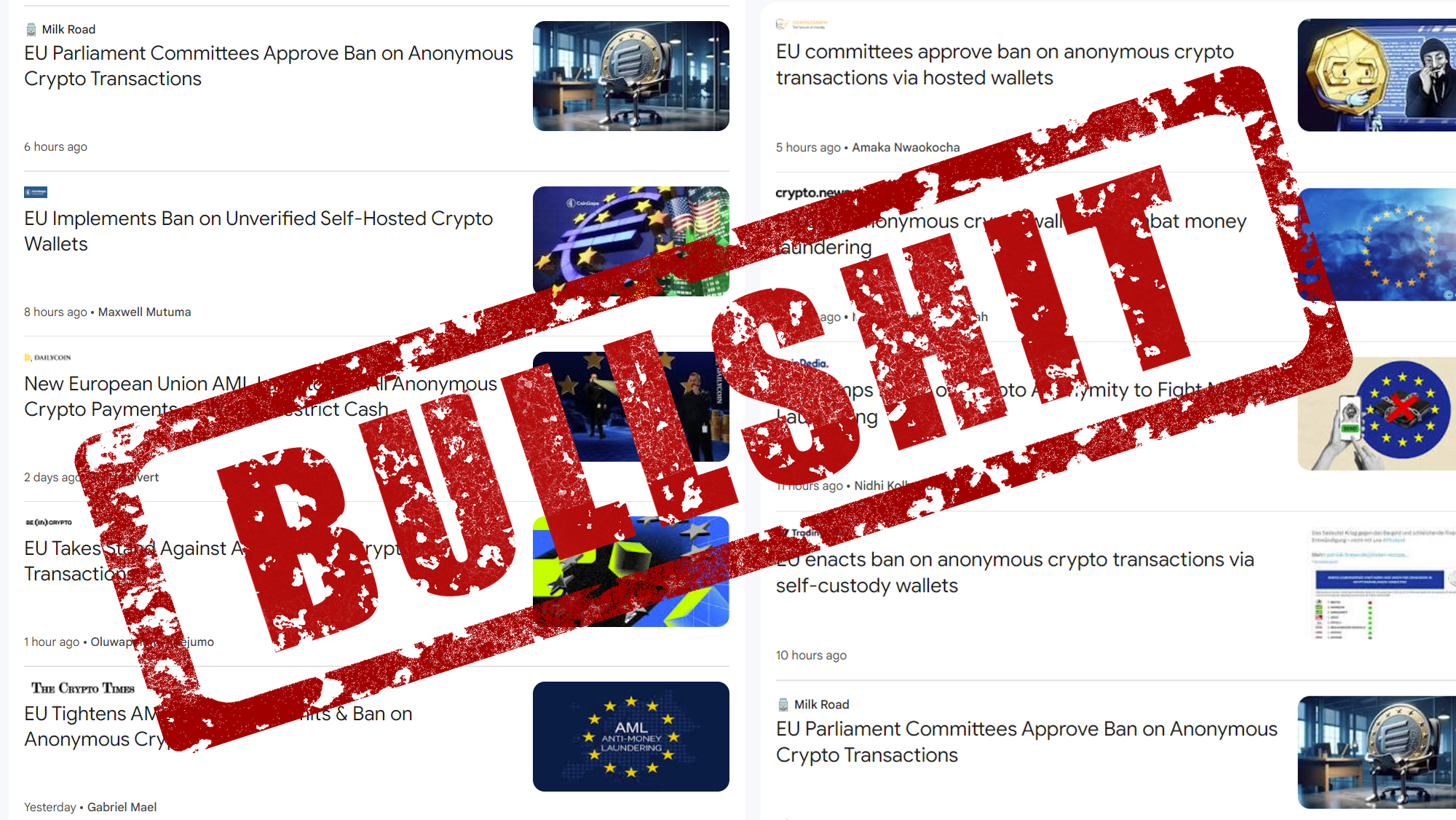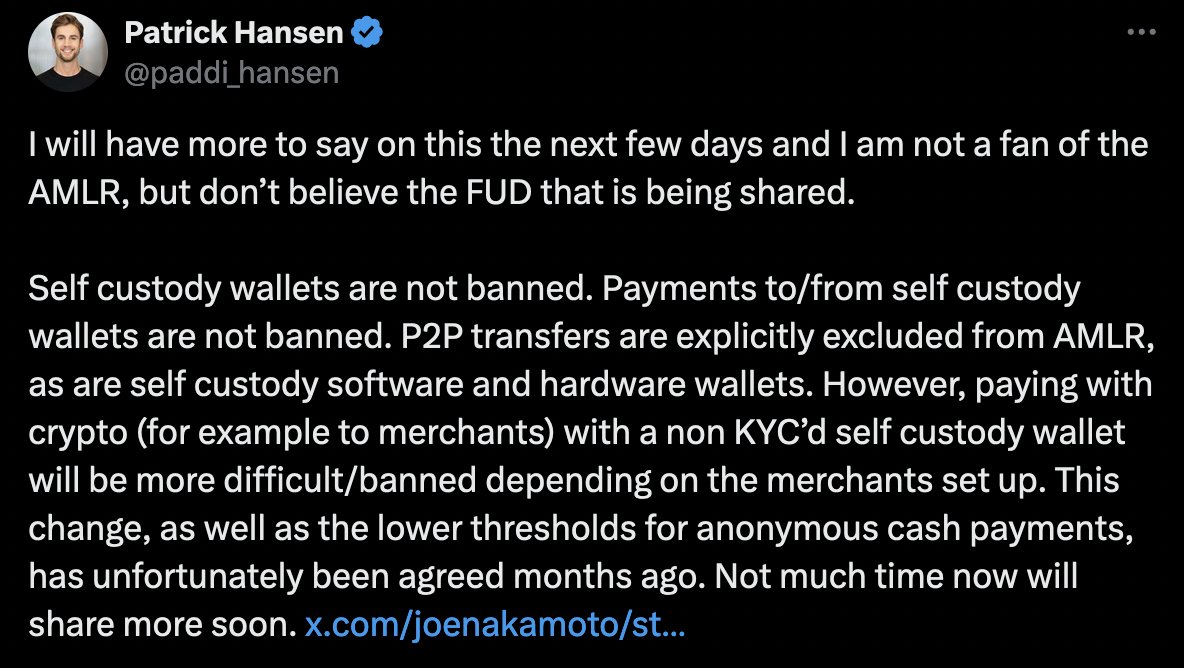EU to Vote on New Draconian AML Package for Service Providers on April 22nd
The sweeping AML package aims to eliminate anonymous cash payments over €3000 in commercial transactions and prohibit cash payments above €10000 in business transactions. It would also require AML/KYC checks on all bitcoin payments to custodial wallets operated by regulated service providers.

- Earlier this week, the EU Committee on Civil Liberties, Justice and Home Affairs and the Committee on Economic and Monetary Affairs voted for the texts after a political agreement on the package was reached in January.
- As written, the law would require 'crypto' service providers to comply with extended customer verification requirements and monitor cross-border transfers and transactions involving private wallets. The broader package also sets up an Anti-Money Laundering Authority (AMLA) based out of Frankfurt, Germany, reported CoinDesk.
- The final vote on the law is set take place on April 22.
"Generally prohibiting anonymous [commercial/business] payments would at best have minimal effects on crime, but it would deprive innocent citizens of their financial freedom. The medicines or sex toys I buy is nobody’s business. To collect donations, dissidents such as the late Alexei Navalny and his wife are increasingly reliant on anonymous donations in virtual currencies worldwide. Wikileaks has also already been cut off from donations by credit card companies. Where every financial transaction is captured and saved forever, this creates a honey pot for malicious hackers and law enforcement as well as a chilling government shadow over every purchase or donation," commented MEP Dr. Patrick Breyer (Pirate Party) in a blog post.
The final text of the provisional agreement has been published on 14 February 2024. When it comes to bitcoin, crypto, and cash transactions, it states the following:
- "In order to ensure effective application of AML/CFT requirements to cryptoassets, it is necessary to prohibit the provision and the custody of anonymous crypto-asset accounts or accounts allowing for the anonymisation or the increased obfuscation of transactions by crypto-asset service providers, including through anonymity-enhancing coins."
"The prohibition does not apply to providers of hardware and software or providers of self-hosted wallets insofar as they do not possess access to or control over those cryptoassets wallets."
- The provisional agreement also entails a "union-wide limit to large cash payments of EUR 10 000. Member States should be able to adopt lower thresholds and further stricter provisions to the extent that they pursue legitimate objectives in the public interest."
- "Given that the AML/CFT framework is based on the regulation of the business economy, the limit should not apply to payments between natural persons who are not acting in a professional function," was stated in the draft.
"In addition, in order to ensure that the Union-wide limit does not unintentionally create barriers for persons who are unbanked to make payments, or for business to deposit the income from their activities in their accounts, payments or deposits made at the premises of credit institutions, payment institutions or electronic money institutions should also be exempted from the application of the limit," was stated in the agreement.

- Lyudmyla Kozlovska, President of the Open Dialogue Foundation, said that the final vote on the legislation will occur on April 22.
- "This is a huge deterioration of financial and privacy rights after EU Commission and Council put pressure on the EU Parliament and removed all provisions in favor for individual rights, privacy and financial inclusion," she added.

- "There was a great public outcry when the Commission asked the public for their opinion on limiting cash payments in 2017. More than 90% of responding citizens spoke out against such a step. Respondents considered paying anonymously in cash an “essential personal freedom” and that “Restrictions on payments in cash are ineffective in achieving the potential objectives," added Breyer in a blog post.
- NOTE: A number of misleading reports claim that EU approved 'ban on anonymous crypto transactions.' Such 'ban' is not in the scope of the proposal.
- According to Lyudmyla Kozlovska, EU Commission said that "the ban on crypto-asset payments not intermediated by a crypto-asset service provider has not been retained given the absence of technical means of enforcing such a requirement at present.”


Draft Law
Coindesk Article / Archive
Beyer Blog Post / Archive




